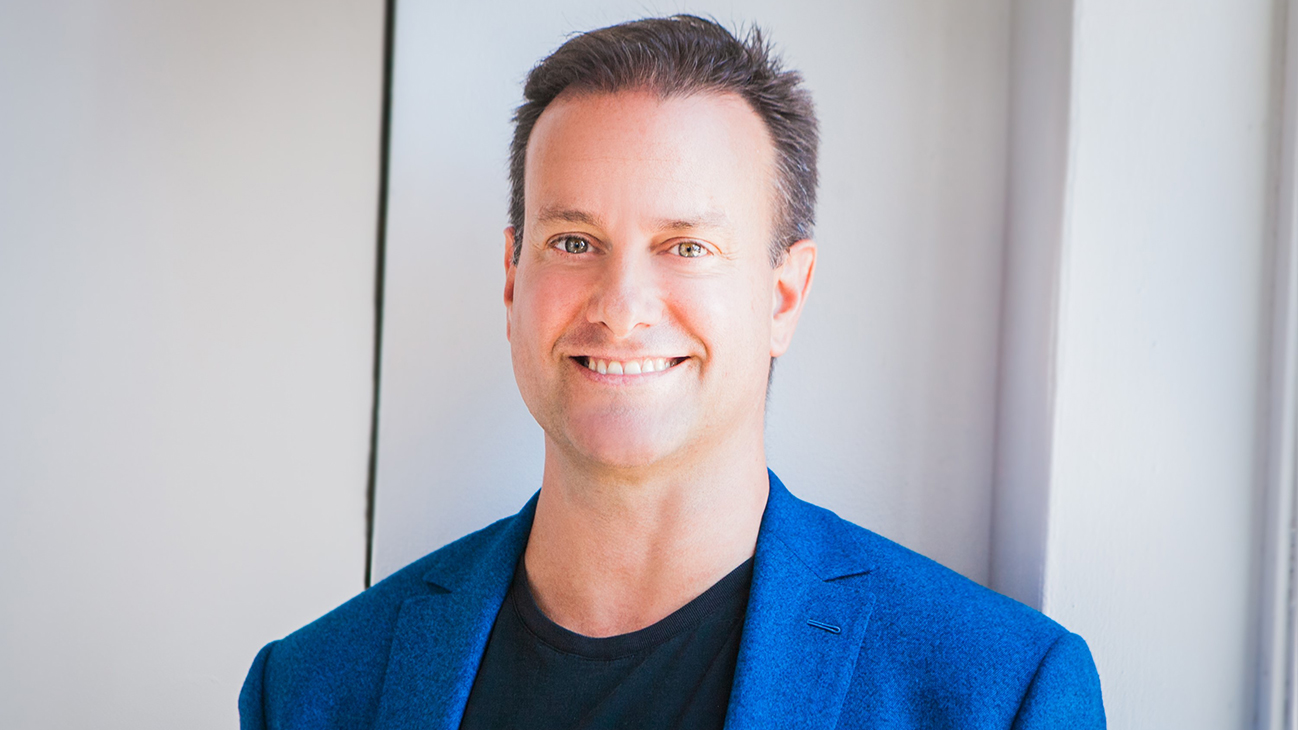Many of us are being asked to stay at home while, as a country, we tackle the spread of COVID-19. While social isolation is great for our physical health during this global pandemic, it’s not so great for our mental health, especially if we aren’t used to working remotely and isolated.
Developing strategies and building routine back into our day is key to maintaining our mental and physical well-being during this slightly hectic time. So, we turned to Dr. Greg Wells – a physiologist who specializes in health and performance – to walk us through some of the small changes we can make to ease this transition and make the most out our of new routines.
Creating Boundaries
It’s far too easy for our work and home life to integrate when we’re working from home, Greg said. To separate the two, it’s important to create boundaries – boundaries of the space you’re in and boundaries around your time.
First, if you are at home with your family, roommates, or friends, you need to ask them not to interrupt you when you’re at your desk. They are not in constant contact with you while you are physically at work, and the same idea needs to apply to your work-home space. But, it’s up to you to set those boundaries and ask for what you need.
When Greg moved his office into his home, he and his family set up one of their rooms as a temporary office space to help them all see this space as work, not home. Here, he set-up his computer with hard-wired internet, a mic, phone, camera, etc. so it felt like his office. Designating a unique space for work allowed him to establish some distance between his home and work life, plus it further emphasized the boundaries to remind his family he is “at work.”
When it comes to time, Greg acknowledged that it can be more difficult to get into a rhythm when first working from home. Time seems to meld together, and you don’t have regular breaks as you would in your office.
To counteract this, Greg actually schedules his breaks into his calendar. He’ll set a 90-minute work block where he’ll work as hard as he can, and when his 90-minutes is up, he’ll take a scheduled break. Whether it’s a short one just to get up from his desk, grab a snack, or do some stretching, or a longer lunch break where perhaps he’ll eat a healthy lunch, exercise or go for a walk to clear his head, call someone to get that emotional connection we all crave, or just engage in an activity that will mentally distract him to give his brain a break.
The sooner you can add structure and boundaries to your work day, the quicker you’ll be able to get your productivity levels and mental clarity back to where they were.
Keeping Mentally Fit
“There is a lot of noise and hysteria out there right now,” Greg said. “We need to do one very specific thing – bring our attention back to the present moment and the space that we’re in.”
We’re all feeling the effects of the pandemic. Constant stress and anxiety of the current situation combined with the physical distance we have to impose on ourselves, can be very isolating at a time when we actually need each other the most.
It’s important to develop strategies around our mental health to keep our mind strong during this difficult time. It starts with focusing on what we can do vs. what we can’t.
In general, our homes are good spaces to be stuck in, Greg said, especially if we, and our loved ones are healthy. We have access to a kitchen, we have space to work, we have a place to read, a table to eat, a space to meditate, phones to connect with people, etc. We are actually surrounded by things that make us happy, because we have filled our homes with things we love.
Reminding ourselves of this is key, Greg said. It helps us focus on what we can control right now. We can control how we spend our time. Greg’s go-to activities are reading, learning, and meditation.
This is your chance to tackle your “to read” pile, he said. If possibly, he recommends physical books only so we can take a break from screens. But any reading for pleasure, especially fiction, is a great activity to clear your mind.
Start an online course, Greg says. Use this extra time to actually explore one of your interests. When we are exposed to new information, we stimulate our brains. Greg started a photography course, something he always felt that he was too busy to do before.
And finally, practice mindfulness or meditation. Take some time in the day to clear your mind through breathing exercises. Find a quiet space and focus on your breath, breathing in slowly and exhaling out. This is especially helpful to ease anxiety and keep stress under control before it controls you.
Most importantly, Greg added, it’s important to limit your exposure to media. Everything we consume, he said, has an impact on us mentally. It’s more important now than ever to be your own advocate and limit your media consumption. Choose your news sources wisely to ensure you are getting the most accurate information and schedule in your media time.
Greg limits his news consumption to first thing in the morning and in the evening. The rest of the time, he doesn’t scroll through social media and he doesn’t check the news, simply because too much news at this highly stressful time isn’t healthy for any of us. With this schedule, he knows he won’t miss anything that may immediately impact him, and he doesn’t read too much of the same information.
Keeping Physically Fit
When your commute to work is the short distance from your bed to your home office, it takes a bit more effort to ensure your day includes physical activity. As we find ourselves sequestered to our home with no access to gyms, it may also take a bit more creative thinking to find the best exercise routine for you.
Yoga is a great two-in-one physical activity, Greg said, as it’s great for our mental and physical health. There is also plenty of online content out there, plus livestreaming options, and all we need is space for an exercise mat.
We can also take advantage of the outdoors and go for a walk, keeping your social distance of course, he said. That recommendation may change as we move forward, but for now, take advantage of the slightly nicer weather we’re experiencing.
It’s also great to crack open a window, Greg said, especially during work hours. Some fresh air can keep you feeling awake and refreshed, plus get that air circulation flowing.
The other part of maintaining our physical health, is a healthy diet. Include vegetables with every meal, he said, plus stay hydrated, minimize caffeine, and control your alcohol intake. This may be easier said than done in these stressful times, but try to confine alcohol to the weekend, he said.
This is also a good opportunity to enhance your home chef skills. Explore new recipes and actually use that spice rack you own. Traditional styles of eating around the world, Greg said, are very good for us and can be very budget-friendly.
Lastly, sleep is also very important to maintain both our mental and physical health. In our family, Greg said, we turned off our morning alarms to allow us all the chance to actually sleep until we naturally wake up – the novelty! It may just be one extra hour of sleep but it’s amazing to see the positive effect this has on us, he said.
To help turn your brain off and fall asleep at night, the key is to defend your last hour, Greg said. No work, no media, no screens. Instead focus on activities that relax you, like reading fiction, having a bath, meditating, chatting with your partner, or calling family and friends. Do things that are good for you, and if you have to use your devices, use them in a positive way by connecting with family and friends, vs. reading the news.
As we all get through this together as a community, Greg said, it’s important to look at this event historically. As with all major events, there will be some positive things that come out of this. This isn’t to minimize the virus or the health crisis some of us our experiencing, he said, but to serve as a reminder that this is also a chance to reconnect with our loved ones and ourselves. We can use this time to explore our interests; connect with our family and friends, even through nontraditional means like virtual get-togethers; and build a healthy routine for us that focuses on the three Rs crucial to our well-being: rest, recovery, and regeneration.
Dr. Greg Wells is a health and high performance expert who, as a scientist and physiologist, has dedicated his career to making the science of human limits understandable and actionable.
A bestselling author, he recently released his new book, Rest, Refocus, Recharge: A Guide for Optimizing Your Life, which explores how small changes in the way you rest, refocus, and recharge can improve your mental health, prevent illness, and deliver optimal results.




